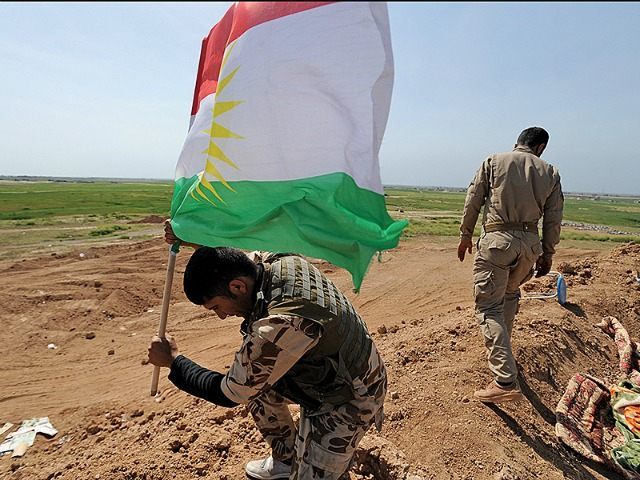The Kurds in northern Iraq’s autonomous region plan to move ahead with a referendum on independence after the Islamic State (ISIS/ISIL) is defeated, according to a senior Kurdish official.
Hoshiyar Zebari, a senior member of the Kurdistan Democratic Party (KDP), told Reuters on Wednesday, ”The idea of a referendum has been re-energized.”
His comments came after the two main Kurdish parties the KDP and the Patriotic Union of Kurdistan (PUK) met on Saturday and agreed that they should hold a referendum this year.
Iraqi Kurdish Peshmerga forces were a major U.S.-led coalition ally against ISIS, currently on its last legs in Mosul, the terrorist group’s last major stronghold in Iraq.
Although Kurds expect the referendum for the “best deal” on self-determination to be approved, the Kurdish official noted that the success of the vote would not mean the Kurdish population would automatically declare independence.
“With Kurdish forces also controlling wider territory regained from Islamic State, the referendum plan adds to questions about Iraq’s unity after the militants have been ousted from Mosul,” notes Reuters.
“Iraqi Kurdish independence has been historically opposed by Iraq and also its neighbors, Iran, Turkey and Syria, as they fear the contagion for their own Kurdish populations,” it adds.
ISIS’s expected defeat in Mosul is projected to split the group’s so-called “caliphate” in Iraq and Syria, essentially pushing the jihadists out of Iraqi territory.
Iraqi Shiite militias, including some backed by Iran, have threatened the predominantly Sunni Kurds in Iraq.
Fighters affiliated with a Baghdad-sanctioned predominantly Shiite group reportedly bombed Kurdish Peshmerga positions in northern Iraq’s Sinjar region this year.
Rudaw noted that a group affiliated with the Iran-allied Popular Mobilization Units (PMU), also known as the Popular Mobilization Forces (PMF) and Hashd al-Shaabi, attacked the KRG Peshmerga forces.
During the previous administration, the United States adhered to the One Iraq Policy, expressing opposition to an independent Iraqi Kurdistan state.
“U.S. policymakers have opposed Kurdish independence on the grounds that the breakup of Iraq would spill more Iraqi bloodshed, undermine Turkey’s security, and provoke conflict with Iran,” explained the Council on Foreign Relations (CFR), arguing that an independent Iraqi Kurdistan may provide opportunities for Washington in an unstable region.
Nevertheless, the United States is to build its biggest consulate building in Erbil, the capital of Iraq’s Kurdistan Region.
Iraq’s Kurdish population have been asking for independence for years despite residing in an autonomous region within the country.
